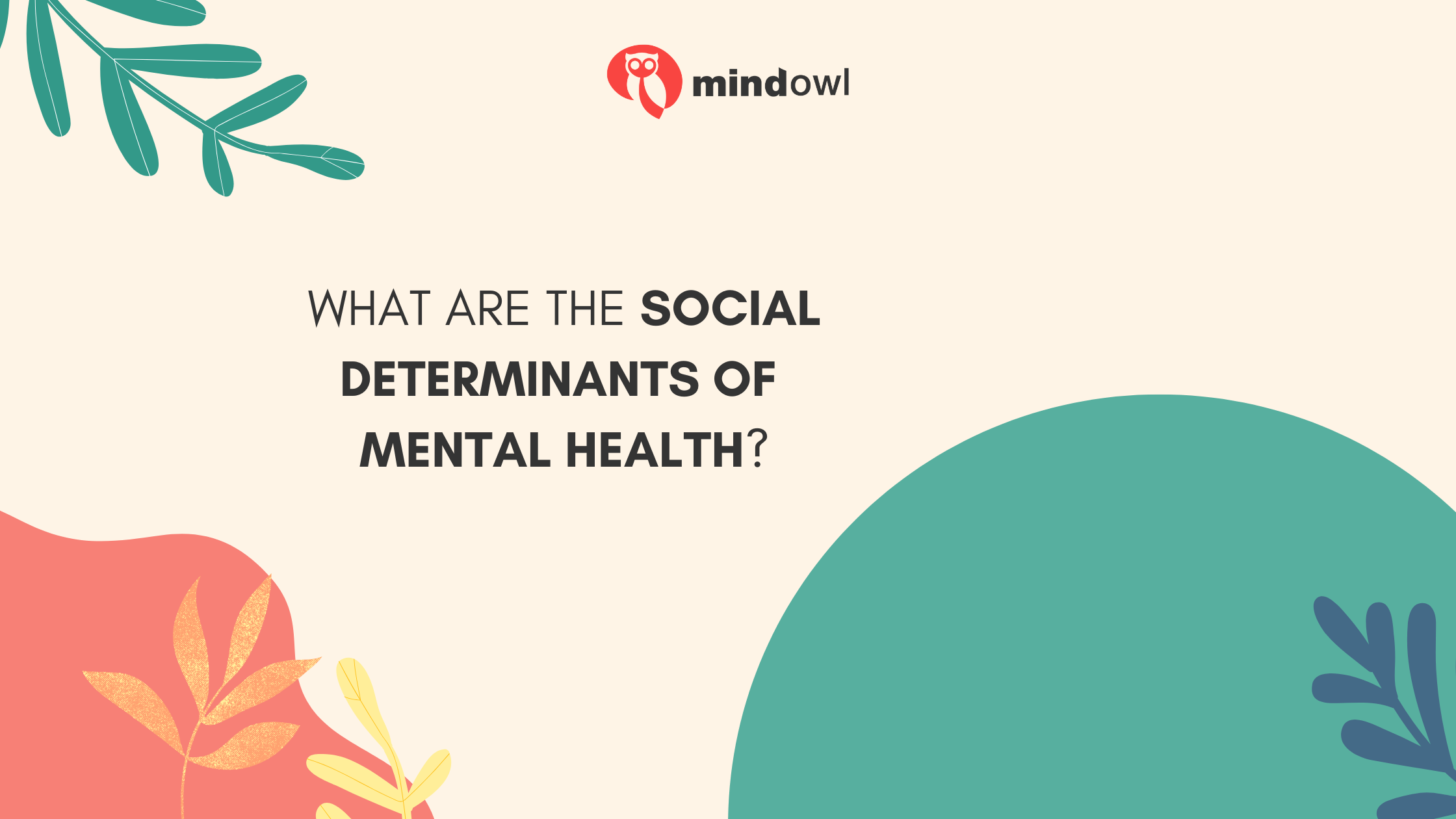Maintaining good mental health is a complicated business. Innate factors come into play, as well as different social, economic, and environmental elements. Unfortunately, many of the risk factors associated with poor mental health are also tied to these social determinants.

Understanding Social Determinants
Social determinants of mental health are defined by the World Health Organisation (WHO) as how the conditions in which people are born, grow, live, work and age affect their mental health. The leading social determinants are economic stability, education, access to healthcare, quality of housing and community. They influence not only individual health but also the health of the population as a whole. These determinants need to be understood and addressed if overall health and mental health are to be improved.
Addressing these determinants takes a complex, multi-faceted approach and a good deal of critical thinking. It can include policy changes, community programs and individual actions. This could be something as simple as improving economic stability through job creation and fair wages that reduce stress and anxiety or making sure everyone has access to quality education and healthcare that provides people with the resources they need to thrive. At the same time, a strong community support network makes a huge difference in mitigating the negative impacts of social isolation. By tackling these social determinants, we can create a more equitable society that promotes mental well-being for all.
Social Determinants at Play
Economic stability is a salient example of a social determinant in action. A lack of access to wealth can cause chronic anxiety, stress, and depression as people struggle to support themselves and their families. At the same time, low income often leads to a reduction in access to healthcare and increased vulnerability to adverse living conditions. These economic hardships create a cycle of mental health challenges that can be difficult to break.
Addressing economic stability for mental health involves implementing policy decisions focused on job creation, fair remuneration and robust social security nets. Program initiatives such as financial support, job training and education can mitigate the negative impacts of economic insecurity on mental health. Improved economic conditions provide a supportive environment that benefits everyone, fostering better mental health outcomes and reducing disparities. By creating a stable economic foundation, we can help people and communities thrive mentally and emotionally.
Money aside, quality education imparts the knowledge and skills necessary to help people overcome many of the challenges that they will face in life. The research shows that higher educational attainment is associated with better job opportunities, higher income and improved social status – all factors that contribute to mental well-being. On the other hand, lack of access to education can result in low self-esteem, limited economic opportunities and increased stress and anxiety. The issue of educational disparities would be addressed through equal access to quality education, supportive learning environments and lifelong learning resources. Improving educational opportunities can, therefore, lead to better mental health outcomes and social equity.
The Impact on Mental Health
The nature vs nurture debate is more or less settled. Ask anyone, from a seasoned psychologist to a fresh graduate or student pursuing a Graduate Diploma in Psychology, and they will tell you that it is a complex interplay of both at any one time.
Anxiety, sadness and other mental health illnesses can be brought on by ongoing stress brought on by unstable finances, subpar living conditions or social isolation. For example, a persistent state of anxiety and uncertainty brought on by financial insecurity can have a detrimental effect on mental health. In the same way, living in hazardous or unhealthy surroundings can raise stress levels and exacerbate underlying mental health conditions.
Mental health is greatly impacted by the availability of resources, including social services, high-quality healthcare and education. People who lack access to these services may not be able to get the help they require, which could make mental health issues worse. Relatively common problems, left untreated, might deteriorate over time if mental health solutions are not readily accessible.

Pathways to Improved Mental Health Outcomes
While many of these problems are pressing, there are plenty of solutions that can help make a real difference. Policy change is a great place to start. The correlation between poor mental health and lower-income communities shows that income disparity is a good place to start. Increasing access to mental health facilities does not have to be complicated either; there are plenty of programs across Australia like Beyond Blue, Lifeline, Kids Helpline, ReachOut and Head to Health that are available across the country – some remotely via video call or phone.
In order to establish a cohesive mental health system, the Australian government has put in place extensive programs such as Vision 2030 and the Fifth National Mental Health and Suicide Prevention Plan. For young people and those suffering from anxiety and despair, programs like Headspace and Beyond Blue offer specialised support. People with severe mental illness can connect to community resources and lessen social isolation with the support of community-based programs like the Mental Health Community Support Resources (MHCSS) in Victoria.
It’s also important to promote mental health in the workplace, and initiatives like Heads Up provide tools for establishing psychologically healthy work environments. The National Mental Health Research Strategy provides funding for mental health research, which aids in the creation of efficient therapies and interventions. R U OK? and other public awareness initiatives encourage people to check in with each other regularly and have honest and open conversations.
Making The Change
Shifting toward a totally egalitarian society will not happen overnight, but each and every one of us can make it more of a reality. Mental health support does not have to come from governments, it comes from people who care. Fresh psychology graduates, social workers or just a caring friend can make all the difference. The research shows that those who care for and support others even improve their own mental health. Reducing your own stress and helping someone in need at the same time.
MindOwl Founder – My own struggles in life have led me to this path of understanding the human condition. I graduated with a bachelor’s degree in philosophy before completing a master’s degree in psychology at Regent’s University London. I then completed a postgraduate diploma in philosophical counselling before being trained in ACT (Acceptance and commitment therapy).
I’ve spent the last eight years studying the encounter of meditative practices with modern psychology.

